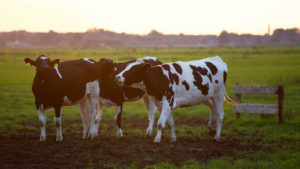When selling a farm, it is important you consider the value, plan for taxes, and reduce any future liability. The reasons for selling a farm vary. Perhaps a developer has presented an attractive offer for the property, the farmer may simply be ready to retire, or the farmer may be consolidating their farm or relocating.
The good news for farmers who want to sell a farm in Ontario is that farm values have never been higher. According to the data from Agriculture and Agri-Food Canada, the Canadian farming sector has a positive economic future. Growing trade in farm products, a rising world population and higher levels of disposable income in developing countries present solid opportunities for growth. This has increased farmland values in most areas of Ontario in the last decade.
If you’re ready to sell farmland in Ontario, we’ve outlined five steps that you should be aware of in order to make an informed decision.
How to Sell a Farm
Step #1: Determine the Farm’s Value
The first step is to determine how to price the farmland accurately. Undervaluing will leave money on the table, and overvaluing will leave your farm sitting on the market for longer than you may want. There are unique factors to consider to price your farm correctly, including:
- Farm profitability
- Farm productivity
- Equipment
- Commodity prices and quota
- Interest rates
- Location
We explain each of these factors in more detail in our article about how to accurately value your farm. We can work with you and other advisors such as your accountant, realtor and/or valuator to determine the price and structure of any proposed sale transaction.
Step #2: Research Options for Selling
Farmland can be sold through a private sale, a traditional public sale through realtor, or through a tender (bid process).
A private sale puts the onus on the farmer to market the farm for sale, find a buyer and ensure the necessary sale agreement is completed (with the assistance of a lawyer). A public sale uses a realtor and MLS to market the property and complete the necessary sale agreement.
The tendering process is the third option and it may help to acquire more bids, and therefore a higher sale price for the farm. The tender system allows a prospective buyer to make their best offer (or bid) on the farmland they wish to purchase. Think of it as a silent auction for property. This eliminates the problem of having farmland listed and sold before you even get a chance to hear about it. The tendering system for farmland is a fair and equitable way of selling the property to those who want it most. We can assist you with preparing and completing a tendering process to avoid any costly errors or incurring any unwanted liability.
Step #3: Consider the Capital Gains Tax for Selling Farmland
Ensuring the sale of farmland is structure appropriately can save you significant amount of taxes. $1,000,000 of the capital gain on the sale of qualified farm property is exempt from capital gains taxes. Qualified farm property includes: farm land and buildings, shares in a family farm corporation, an interest in a family farm partnership and quota.
This exemption is available to sole proprietors and each partner in a partnership, since capital gains in a partnership flow directly to the partners who then can utilize the exemption. The capital gains exemption is not available to corporations selling farmland; however, if you sell the shares of a family farm corporation, the sale of shares may qualify for the exemption. For more information about the capital gains tax for farmland, refer to the Ontario Ministry of Agriculture, Food and Rural Affairs.
Step #4: Prepare the Property for Sale
First impressions matter, especially for such a significant investment. A prospective buyer will want to see that the farm is in good working order with regular maintenance being made a priority. Make sure gates, fencing and driveways/trackways are perfect since these are often the first things a buyer will see as they enter the property. Sheds and barns should be cleaned out as best as possible, with care being shown to the livestock; fields should be weeded/cut. Carry on farming as usual during this sale. This shows pride of ownership for prospective buyers and also helps to maintain the farm’s profitability.
If you are selling an operating farm business, such as a farm market or intensive production operation such as a greenhouse, a prospective purchaser may request to review your financial records during the pre-sale process. If you are selling equipment with the farm, you should have a list of all the equipment, the age of each and warranty (if applicable). A property survey is also important, particularly if you are selling farmland to developers. It’s also wise to have cropping information, soil testing results, quota, yields and other details that show the productivity of your farm.
While this might seem like a daunting preparation list, remember that it will help the sale of your farm to go more smoothly in the long run.
Step #5: Prepare an Agreement of Purchase and Sale
The last step is to work with a lawyer that’s knowledgeable and experienced in agricultural real estate transactions. A lawyer will assist you in finalizing the Agreement of Purchase and Sale, respond to any title issues that the purchaser’s lawyer raises, and will assist you in closing the sale transaction. A properly drafted Agreement of Purchase and Sale will reduce any future liability you may have to the purchaser and protect you and the proceeds you received from the sale.
Consult with a Lerners Agricultural Lawyer
At Lerners LLP, our Agricultural Law Group can help clients with all aspects of agricultural law, from sales to financing to succession planning and wills. For more information, please contact us at: 519-672-4510.








